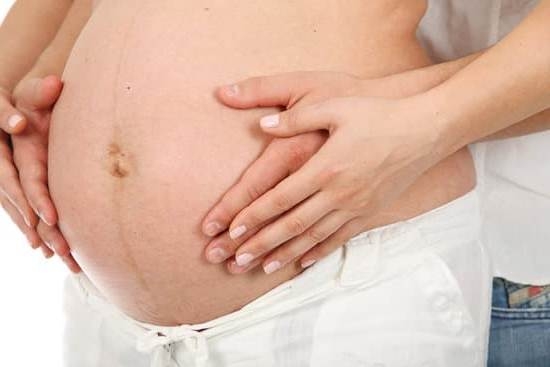Are you experiencing some unusual symptoms and suspect that you may be pregnant? Understanding the early symptoms of pregnancy can help you prepare for what to expect in the coming weeks. From nausea and fatigue to mood swings and cravings, early pregnancy brings about a variety of changes to your body and emotions.
As you begin this journey, it’s important to be aware of the signs and symptoms that may indicate pregnancy. This comprehensive overview will provide valuable information on what to expect during early pregnancy, from physical changes like breast tenderness and changes in body temperature to emotional changes such as mood swings.
Nausea and morning sickness often go hand in hand with early pregnancy, affecting many women in the first trimester. Fatigue is another common symptom that can leave expecting mothers feeling tired and drained. Changes in body temperature may also occur as a result of hormonal shifts, while cravings and food aversions can lead to sudden dietary preferences. Understanding these symptoms can help you navigate the early stages of pregnancy with greater ease and confidence.
Signs and Symptoms of Early Pregnancy
Overview
The early symptoms of pregnancy can vary from woman to woman, but there are some common signs that may indicate the beginning of a pregnancy. It is important to be aware of these symptoms, especially if you are trying to conceive. Understanding what to look for can help you determine if it is time to take a pregnancy test.
Common Early Symptoms
Some of the most common early symptoms of pregnancy include missed periods, nausea and morning sickness, fatigue, changes in body temperature, cravings and aversions, mood swings, breast changes and tenderness, and hormonal fluctuations. While not every woman will experience all of these symptoms, experiencing one or more may be an indication that you are pregnant.
Seeking Confirmation
If you suspect that you may be pregnant based on the early symptoms you are experiencing, it is important to seek confirmation from a healthcare professional. They can perform a blood test or ultrasound to confirm the pregnancy. It is also important to start taking prenatal vitamins and making healthy lifestyle choices as soon as possible if you believe you are pregnant.
Nausea and Morning Sickness
These symptoms are believed to be caused by the hormonal changes that take place in the body during early pregnancy, specifically an increase in human chorionic gonadotropin (hCG) and estrogen. While this increase in hormones is necessary for a healthy pregnancy, it can also lead to some uncomfortable side effects like nausea and morning sickness. It is important to note that not all pregnant women experience these symptoms, and their severity can vary from woman to woman.
Managing nausea and morning sickness during early pregnancy can be challenging, but there are several strategies that may help alleviate these symptoms. Eating small, frequent meals throughout the day, staying hydrated, getting plenty of rest, and avoiding strong odors or foods that trigger nausea can all be helpful.
In some cases, healthcare providers may recommend certain medications or supplements to help manage these symptoms. If you are experiencing severe nausea and vomiting during early pregnancy, it is important to consult with your healthcare provider for personalized advice and support.
| Early Pregnancy Symptoms | Details |
|---|---|
| Nausea | A queasy feeling in the stomach starting around 2 weeks after conception. |
| Morning Sickness | Refers to the nausea and vomiting often associated with early pregnancy. |
| Hormonal Changes | An increase in hCG and estrogen is believed to cause these symptoms. |
Understanding Fatigue and Its Connection to Early Pregnancy
Feeling unusually tired or fatigued is often one of the early symptoms of pregnancy that many women experience. This overwhelming feeling of exhaustion can be quite perplexing, especially if you’re getting enough sleep and eating well. The reason behind this extreme fatigue during early pregnancy is primarily due to the hormonal changes your body is undergoing.
The hormonal changes in the body, particularly the increase in progesterone levels, can cause a significant drop in energy levels. Additionally, the body is working hard to nurture and nourish the developing embryo, which also contributes to feelings of fatigue. This fatigue can set in as early as one week after conception and typically lasts throughout the first trimester.
It’s important for pregnant women experiencing fatigue to listen to their bodies and take it easy when needed. Getting plenty of rest and taking short naps throughout the day can help combat these feelings of extreme tiredness. Moreover, maintaining a healthy diet, staying hydrated, and light exercise like walking or prenatal yoga can also help alleviate some of the fatigue associated with early pregnancy.
Changes in Body Temperature
During the early stages of pregnancy, many women experience changes in their body temperature. These fluctuations are considered a common early symptom of pregnancy and can be an indication that a woman may be expecting. It is important to understand these changes and how they relate to pregnancy.
Some common changes in body temperature during early pregnancy include:
- Increased Basal Body Temperature: Many women notice a slight increase in their basal body temperature shortly after ovulation, which can indicate a successful implantation of the embryo.
- Hot Flashes: Some women may experience sudden episodes of feeling excessively warm or sweaty, often accompanied by flushing of the skin, as a result of hormonal changes occurring during early pregnancy.
- Sensitivity to Temperature: Pregnant women may find themselves feeling more sensitive to hot or cold temperatures than usual, possibly due to changes in hormone levels affecting the body’s thermoregulation.
It is important for women who suspect they may be pregnant but are unsure to monitor their body temperature and look out for any significant fluctuations. Keeping track of any noticeable changes can provide valuable information about the potential onset of pregnancy. Consulting with a healthcare professional is recommended if there is uncertainty about the significance of these temperature changes in relation to potential pregnancy.
Early Pregnancy Cravings and Aversions
Cravings during pregnancy can vary widely, from sweet or salty foods to unusual combinations such as pickles and ice cream. Some women may experience cravings for non-food items, a condition known as pica, which can be dangerous and should be discussed with a healthcare provider. On the other hand, many women also experience food aversions where they have an intense dislike or even nausea at the thought of eating certain foods.
Understanding these early pregnancy cravings and aversions is important for both expecting mothers and their partners. Cravings can provide valuable clues about nutritional needs during pregnancy, while aversions might signal foods that should be avoided for the health of the mother and baby. It’s essential for pregnant women to pay attention to these signals from their bodies and adjust their diets accordingly.
A study published in the journal Appetite found that cravings frequently occur in the first trimester of pregnancy, which is typically when most women start experiencing symptoms of early pregnancy. This highlights the importance of understanding early pregnancy cravings and aversions as they play a significant role in the overall health and well-being of both the mother and baby.
| Early Pregnancy Cravings | Early Pregnancy Aversions |
|---|---|
| Sweet or salty foods | Intense dislike or nausea at certain foods |
| Desire for unusual food combinations | Avoidance of certain foods due to heightened smell or taste sensitivity |
Mood Swings and Emotional Changes in Early Pregnancy
During the early stages of pregnancy, it is not uncommon for women to experience mood swings and emotional changes. These fluctuations are often attributed to the hormonal changes that occur as the body adjusts to the new pregnancy. Understanding and recognizing these emotional changes can play a crucial role in providing support and understanding for expectant mothers.
The Role of Hormones
One of the primary factors contributing to mood swings and emotional changes in early pregnancy is the fluctuation of hormones, particularly estrogen and progesterone. These hormonal shifts can impact neurotransmitters in the brain, leading to feelings of irritability, sadness, or anxiety. The surge in hormones can also affect sleep patterns, resulting in fatigue which can further exacerbate emotional fluctuations.
Dealing With Emotional Changes
It is important for expectant mothers to understand that experiencing mood swings and emotional changes is a normal part of early pregnancy. Open communication with a healthcare provider, partner, or support system can provide reassurance and help manage these fluctuations effectively. Engaging in stress-reducing activities such as meditation, gentle exercise, or pursuing hobbies can also help alleviate emotional symptoms.
Supporting Expectant Mothers
For partners and loved ones, being aware of the potential for mood swings and emotional changes during early pregnancy is crucial. Providing empathy, patience, and a listening ear can make a significant difference in supporting an expectant mother through this phase. In cases where emotions become overwhelming or interfere with daily functioning, seeking professional guidance from a healthcare provider or counselor is recommended to address any concerns related to mental well-being during early pregnancy.
By understanding the role of hormones, being proactive in managing emotional changes, and providing adequate support, expectant mothers can navigate through mood swings and emotional fluctuations during early pregnancy with greater ease and confidence.
The Role of Hormonal Changes in Early Pregnancy Symptoms
During early pregnancy, a woman’s body undergoes numerous changes, including hormonal fluctuations that can lead to a variety of symptoms. These hormonal changes play a significant role in the overall experience of early pregnancy and can manifest in a number of ways. Understanding the role of hormonal changes in early pregnancy symptoms is important for expecting mothers.
- Increased Levels of Human Chorionic Gonadotropin (hCG)
- Rise in Estrogen and Progesterone Levels
- Impact on Digestive System: Hormonal Changes and Nausea
The first hormonal change that occurs during early pregnancy is an increase in levels of human chorionic gonadotropin (hCG). This hormone is produced by the placenta and plays a crucial role in maintaining the production of other hormones such as estrogen and progesterone.
Furthermore, the rise in estrogen and progesterone levels also contributes to the various symptoms experienced during early pregnancy. These hormones are responsible for stimulating the growth of the placenta and sustaining the pregnancy. However, they can also cause side effects such as fatigue, breast tenderness, and mood swings.
Hormonal changes can also impact the digestive system, leading to symptoms such as nausea and morning sickness. The surge in hormones can cause food aversions, heightened sense of smell, and increased stomach acidity, which are commonly experienced as early symptoms of pregnancy. Understanding these hormonal changes is vital for expectant mothers as it helps them navigate through their pregnancies more confidently and with less anxiety about their changing bodies.
Understanding Breast Changes and Tenderness in Early Pregnancy
In conclusion, early symptoms of pregnancy can vary from woman to woman, but there are some common experiences shared by many. Understanding these symptoms can help individuals recognize the signs and understand what to expect during the early stages of pregnancy.
One common symptom experienced by many women is breast changes and tenderness. These changes are often one of the earliest signs of pregnancy, as increasing levels of hormones prepare the body for breastfeeding. It’s important for women to be aware of these changes and seek medical advice if they have any concerns or unusual symptoms.
Overall, experiencing early symptoms of pregnancy can be an exciting and sometimes challenging time for women. While each woman’s experience is unique, understanding the signs and symptoms can help them navigate this crucial stage in their lives. By seeking regular prenatal care and staying informed about their changing bodies, women can ensure a healthy pregnancy journey for both themselves and their babies.
Frequently Asked Questions
How Soon Do Early Pregnancy Symptoms Start?
Early pregnancy symptoms can start as early as one week after conception, with some women experiencing symptoms such as fatigue, nausea, breast tenderness, and frequent urination. However, every woman’s experience is different.
How Do You Feel in Early Pregnancy?
In early pregnancy, a woman may feel a range of symptoms including fatigue, nausea or morning sickness, increased urination, breast tenderness, mood swings, and a heightened sense of smell. These symptoms can vary in intensity from woman to woman.
How Do You Feel After 1 Week of Pregnancy?
After one week of pregnancy, some women may not feel any different at all as it is still very early in the pregnancy. However, others may start to notice subtle changes such as mild nausea or fatigue. It’s important to remember that every pregnancy is unique and symptoms can vary widely between individuals.

Welcome to my fertility blog. This is a space where I will be sharing my experiences as I navigate through the world of fertility treatments, as well as provide information and resources about fertility and pregnancy.





